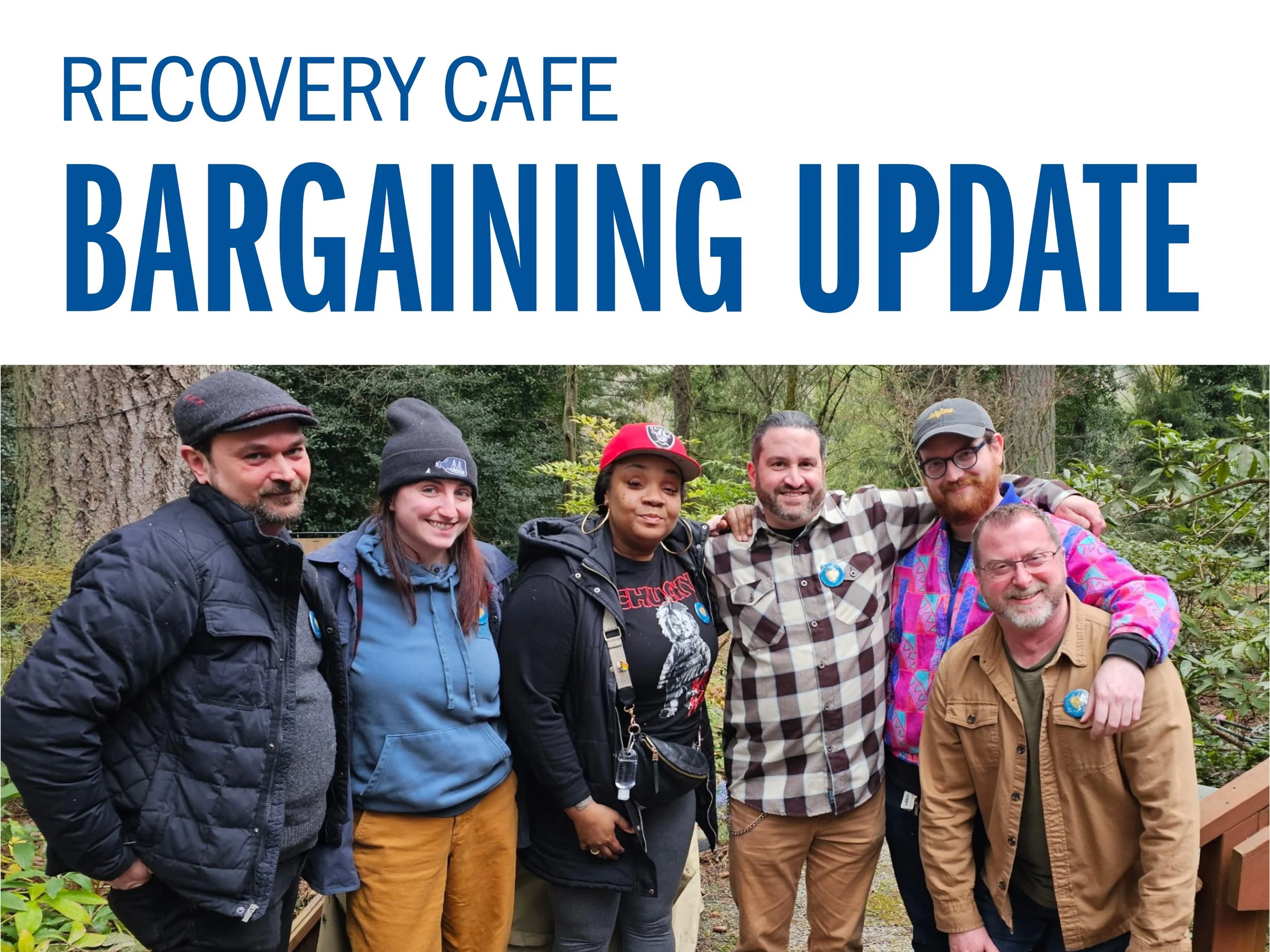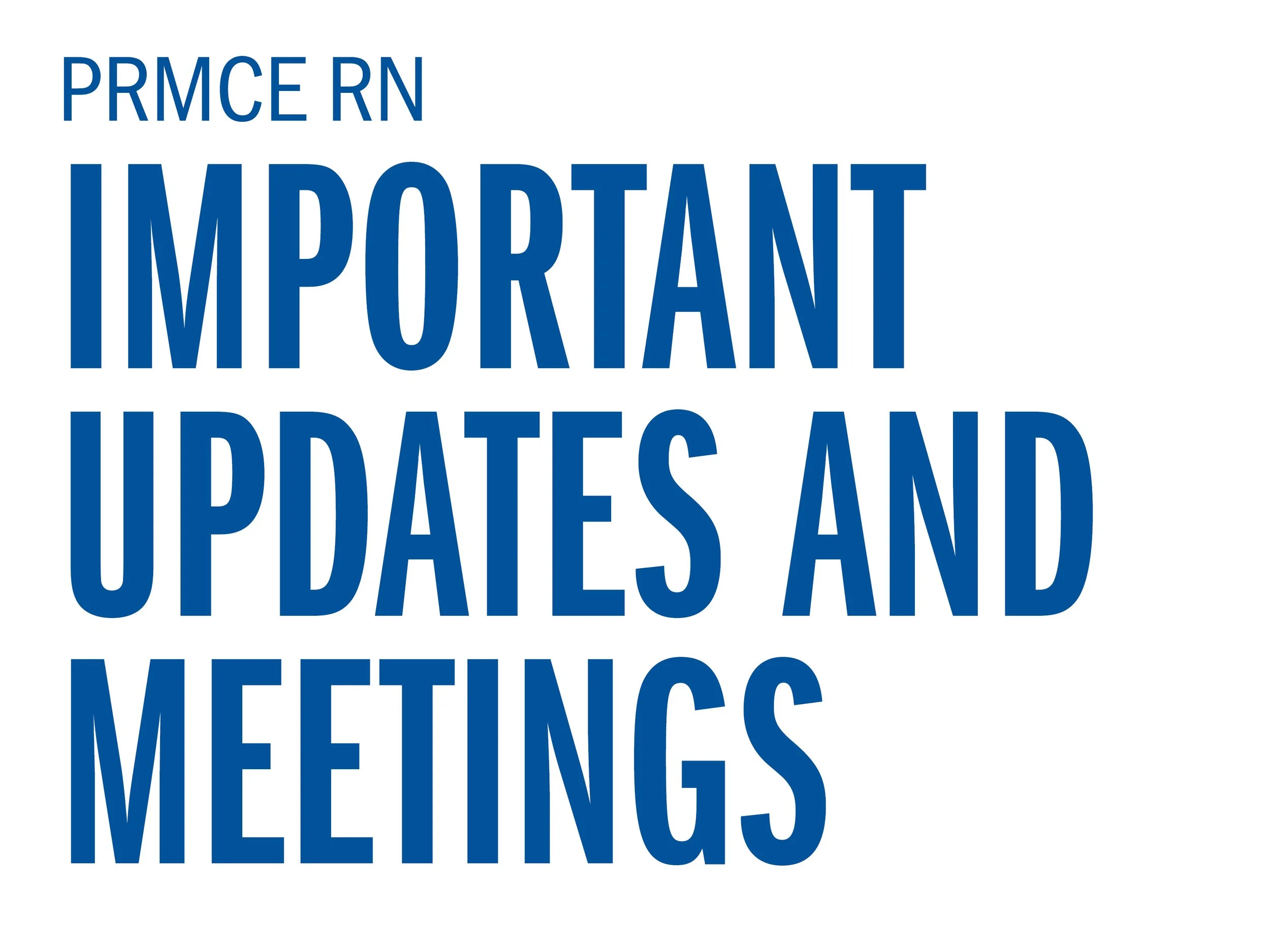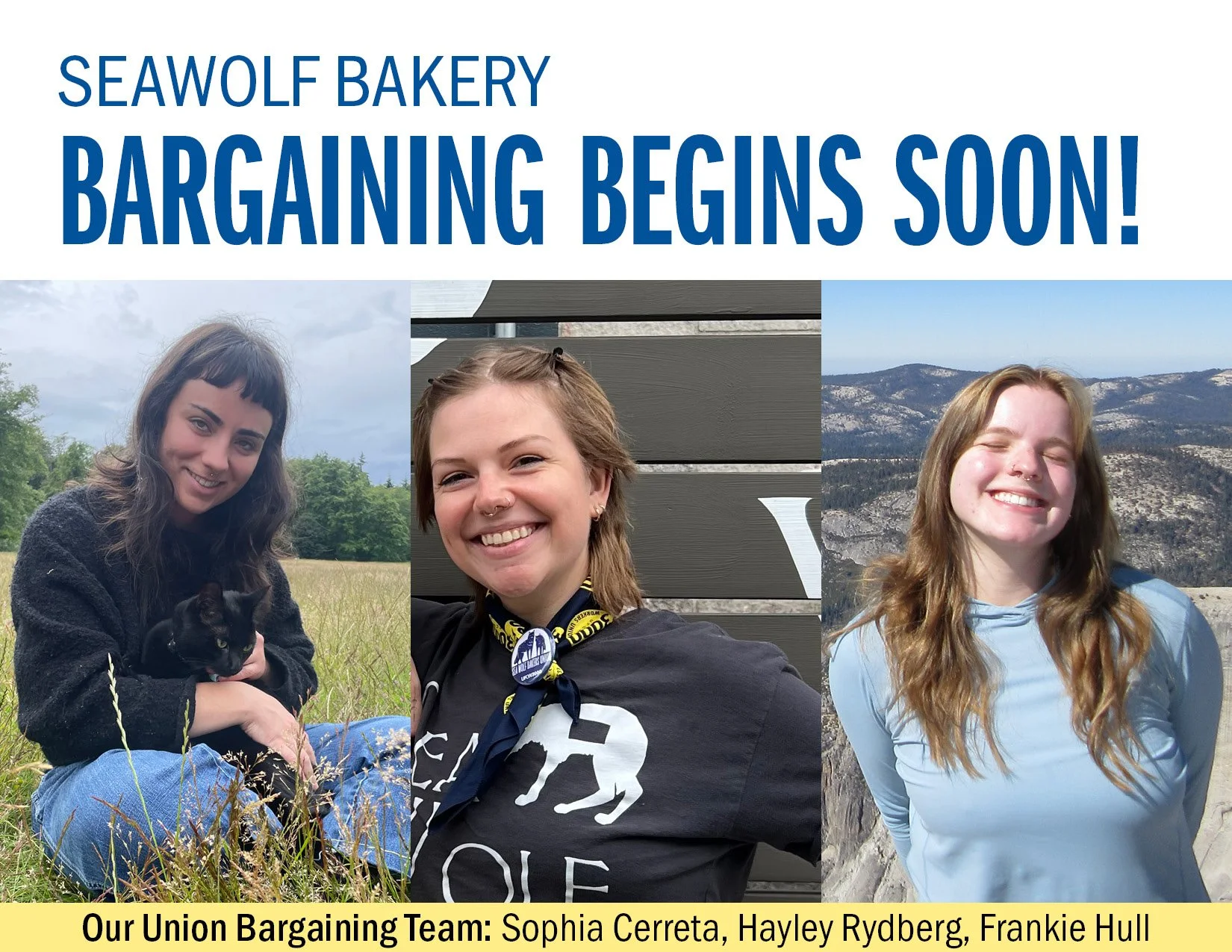Members take action, Governor responds with mandated customer limits and other protections
/Grocery employers’ failure to enforce social distancing requirements in their workplaces has led to member actions across the state. UFCW 21 has been advocating for stricter limits on customer counts backed by members’ dramatic stories, testimonials, and petitions. Fred Meyer workers have been especially concerned about the issue of customer counts because they say the company’s self-imposed limit of 50% was inadequate to begin with and rarely enforced.
“We have one of the busiest stores and no one is seeing the customer numbers drop. I make homemade masks for free for my co-workers because I want us safer. The top treats us like numbers instead of people. We have names, we are important, treat us like we are your family and respect us." -S., Fred Meyer
“There needs to be a limit on the customers allowed in the store at a time, masks and gloves should be required, and social distancing enforced.” -Bella, Fred Meyer
Governor Jay Inslee has responded to frontline grocery workers’ safety concerns by requiring retail stores to limit customer counts to 30% of maximum occupancy during Phase 2 of the State’s Covid-19 response plan.
Thanks to workers speaking up, the state’s new rules include:
Limiting store occupancy to 30% of maximum building occupancy or lower.
Distance markers to help maintain 6-foot social distancing in lines both inside and outside the store.
Conspicuous signage at entrances and throughout the store alerting staff and customers to the required occupancy limits, six-foot physical distancing guidance, and policy on face coverings.
Sneeze guards or other barriers wherever there’s potential interaction between employees that could be less than 6 feet.
Frequently cleaning and sanitizing, especially high-touch areas.
Maintaining minimum six-foot separation between all employees and customers in all interactions at all times.
When that’s not feasible, they must use other prevention measures such as barriers or staggered breaks and shifts.
Providing personal protective equipment (PPE) such as gloves, goggles, face shields and face masks as appropriate or required to employees for the activity being performed.
Ensuring frequent and adequate hand washing with adequate maintenance of supplies.
Read the state’s full guidance here.
If your employer is not following these guidelines, you can report them directly to the State of Washington for violating the governor’s order.
UFCW 21 Political Director Samantha Grad said the voice of frontline workers was essential in moving the Governor to action: “It only happened because UFCW 21 members were sharing what it’s like in their stores and why it’s dangerous for workers and customers. We are grateful to Governor Inslee for listening to workers and taking action to protect our communities.”






































